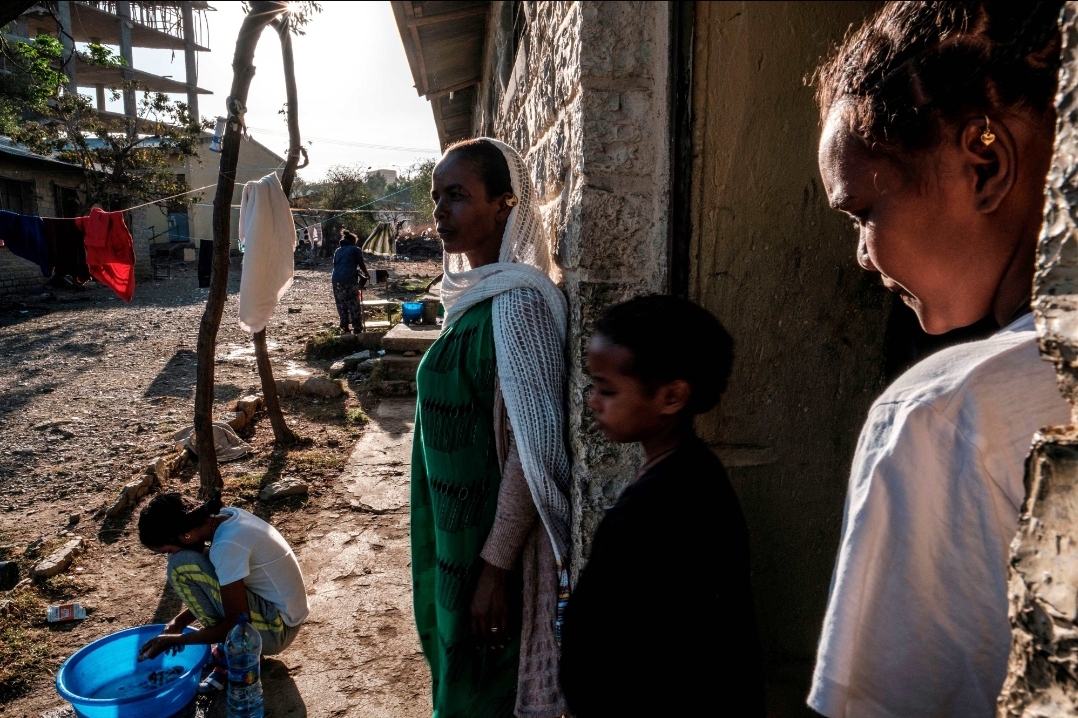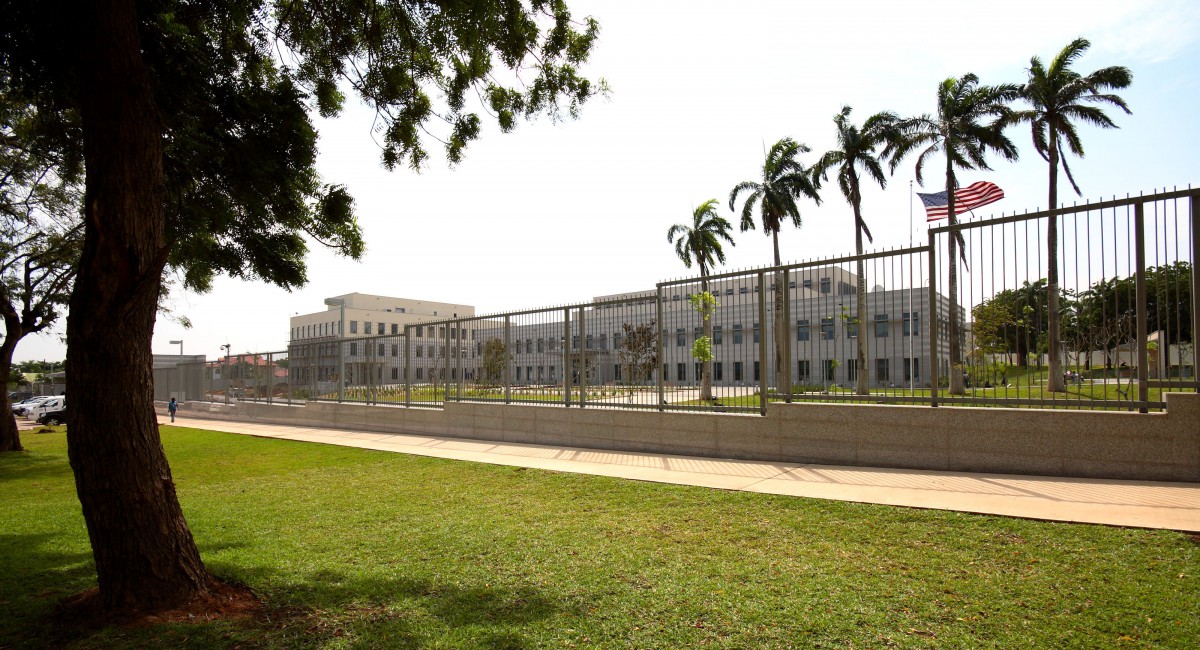- Local authorities and Amhara forces in Western Tigray Zone in northern Ethiopia have continued an ethnic cleansing campaign against Tigrayans since the November 2, 2022, truce agreement.
- The Ethiopian government should suspend, investigate, and appropriately prosecute security forces and officials implicated in serious rights abuses in Western Tigray.
- International law provides that people forcibly removed from their homes have the right to return. However, the current context in Western Tigray is not conducive for voluntary, safe, and dignified returns.
Local authorities and Amhara forces in Ethiopia’s northern Tigray region have continued to forcibly expel Tigrayans as part of an ethnic cleansing campaign in Western Tigray Zone since the November 2, 2022, truce agreement, Human Rights Watch said today.
The Ethiopian government should suspend, investigate, and appropriately prosecute commanders and officials implicated in serious rights abuses in Western Tigray.
Since the outbreak of armed conflict in Tigray in November 2020, Amhara security forces and interim authorities have carried out a campaign of ethnic cleansing against the Tigrayan population in Western Tigray, committing war crimes and crimes against humanity. Recent Human Rights Watch research found that two officials, Col. Demeke Zewdu and Belay Ayalew, who were previously implicated in abuses, continue to be involved in arbitrary detention, torture, and forced deportations of Tigrayans.
“The November truce in northern Ethiopia has not brought about an end to the ethnic cleansing of Tigrayans in Western Tigray Zone,” said Laetitia Bader, deputy African director at Human Rights Watch. “If the Ethiopian government is really serious about ensuring justice for abuses, then it should stop opposing independent investigations into the atrocities in Western Tigray and hold abusive officials and commanders to account.”
From September 2022 to April 2023, Human Rights Watch interviewed 35 people by phone, including witnesses and victims of abuses, and aid agency staff. Most are Tigrayan and had been arbitrarily detained in the town of Humera. Interviewees said that local authorities and Amhara forces held over a thousand Tigrayans in detention in the Western Tigray towns of Humera, Rawyan, and Adebai on the basis of their identity before forcibly expelling Tigrayans in November 2022 or January 2023. In May, Human Rights Watch provided a summary of its preliminary findings to the Ethiopian government but received no response.
Amhara regional special forces and Fano militia in Humera and Rawyan held Tigrayans in both official and unofficial detention sites in dire conditions. “There was no medical treatment,” said a 28-year-old who was detained in Bet Hintset prison in Humera. “If people got sick, they remained there until they die.” Many died due to lack of food and medication.
On the evening of November 9, Amhara forces and authorities in Western Tigray carried out the coordinated expulsion of detainees from sites around Humera and nearby towns to central Tigray. A report prepared by aid agencies found that Fano militia transported more than 2,800 men, women, and children from 5 detention sites in Western Tigray on November 10, according to Reuters.
Several former detainees told Human Rights Watch that again in early January 2023, at least 70 people, including residents and detainees, were forcibly expelled from Western Tigray.
Although the term ethnic cleansing is not formally defined under international law, the United Nations Commission of Experts, mandated to look into violations of international humanitarian law committed in the territory of the former Yugoslavia, described it as a “purposeful policy designed by one ethnic or religious group to remove by violent and terror-inspiring means, the civilian population of another ethnic or religious group from certain geographic areas.” International law provides that people forcibly removed from their homes have the right to return. However, the current context in Western Tigray Zone is not conducive for voluntary, safe, and dignified returns of Tigrayan refugees and internally displaced people, Human Rights Watch said.
As of March, militias in Western Tigray continued to threaten and harass Tigrayan civilians. A woman from Adebai who fled toward Sudan, said: “The [militias] came into my home and said I need to leave because it’s not our land. They would knock at midnight and say Tigrayans can’t come back.” In April, three former and one current resident of Humera said that interim authorities were bringing in and settling communities from the Amhara region in the town, making it harder for Tigrayans to return.
Many displaced people told Human Rights Watch that they hoped to return home but did not feel safe while abusive officials and security forces remained. As of October 2022, the UN refugee agency had registered 47,000 Ethiopian refugees in eastern Sudan, with many reportedly displaced from Western Tigray. The precise figure of Tigrayans internally displaced from Western Tigray remains unknown.
In 2021, hundreds of thousands were estimated to be internally displaced to other parts of the Tigray region outside of Western Zone.
Tigrayans interviewed expressed the need for justice and accountability. “Starting from the high officials all the way to those at the lowest level, the ordinary citizens that participated in criminal activities all need to be questioned, and accountability is needed,” said a 40-year-old man from Humera. “The international community and Ethiopian government need to work hard to make sure this never happens again.”
The Ethiopian government has demonstrated little interest in bringing those responsible for abuses in Western Tigray to justice. In September 2022, an Inter-Ministerial Task Force established by the Ministry of Justice reported that it would investigate violations in Western Tigray by December 2022. The government so far has not released details of these investigations nor held anyone responsible for serious violations.
In May, during Ethiopia’s review before the UN Committee against Torture, Ethiopian officials downplayed reports of ethnic cleansing. The committee said that the government should carry out prompt, impartial, and effective investigations into alleged human rights violations during the conflict in northern Ethiopia, and recommended that an independent body investigate allegations of torture and ill-treatment.
While the European Union, the United States, and other international partners have said that justice is a priority in Tigray, they are falling short of identifying explicit or concrete benchmarks for accountability for the atrocities against Tigrayans in Western Tigray, despite the near absence of independent investigations there to date, Human Rights Watch said. Instead, since the signing of the truce, many governments have sought a rapprochement with Ethiopian federal authorities rather than seeking tangible progress on accountability. In April, the EU Foreign Affairs Council adopted formal conclusions on its future engagement with Ethiopia but did not address the lack of progress on justice, including in Western Tigray.
International monitoring and investigations in Western Tigray remain critical, Human Rights Watch said. The African Union monitoring mission reported its plans to visit Western Tigray in June.
Governments should continue to support the mandate of the UN International Commission of Human Rights Experts on Ethiopia (ICHREE), established by the Human Rights Council, urge the Ethiopian government to cooperate with the commission, and scrutinize the Ethiopian government’s investigations in Western Tigray. Reengagement with Ethiopia should be tied to concrete progress on delivering justice and accountability for victims of violations.
The European Union should take the lead to ensure that the UN Human Rights Council renews the experts’ mandate at its 54th session in September 2023.
“Ethiopia’s international partners are eager to point to an improved rights situation, but this is out of sync with the lived reality many communities are facing,” Bader said. “If they truly want to see sustainable and credible rights progress, they should stop overlooking victims’ calls and press Ethiopian authorities to end ongoing abuses and investigate those leading the atrocities.”
(Source: Human Rights Watch)



